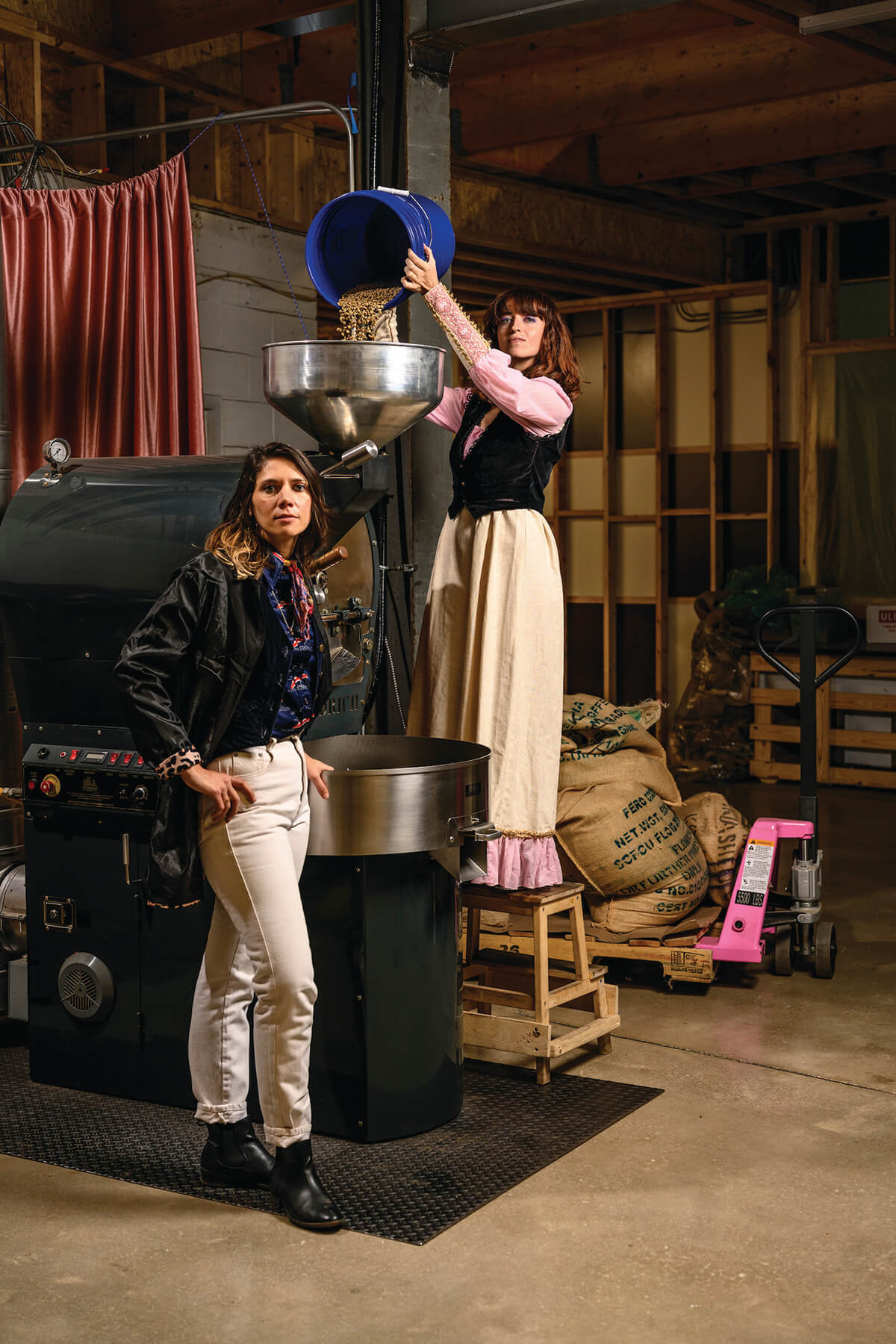Food & Drink
Thread Coffee Roasters Offers Java With a Mission
Not only does the women-and-queer-owned roastery source cups of first-rate coffee, it also shows solidarity with social justice movements around the world.

Women-and-queer-owned Thread Coffee Roasters was founded in 2012, not only as a way of bringing cups of first-rate coffee to Baltimore, but to show solidarity with social justice movements around the world—including the empowerment of women and helping small farmers.
“The founders wanted to feel good about what they were doing,” says co-owner Nani Ferreira-Mathews, pictured left. “Coffee roasting was a very hard occupation to get into if you were female or female-presenting.” Casey McKeel, one of the founders, hadn’t been able to move beyond barista into a roasting position. It was an opportunity for her to say, ‘If you won’t let me do it at your business, I’ll start my own.’”
With its signature pink, black, and silver foil bags, the roaster distinguishes itself by being not only a wholesale operation—it’s available at MOM’s and Whole Foods—but is also a member of an importing co-op that sustains growers with a subscription model.
While McKeel moved on from Thread last year, Ferreira-Mathews and roaster-owner Holly Kent Payne, pictured right, carry on the work. In addition to being named Best Coffee in Maryland by Food & Wine magazine in 2019, Thread became one of three finalists in the world for Roaster of the Year (2021) by Roast Magazine.
We recently chatted with Ferreira-Mathews about her venture.
It says on your website, “Women cannot live by coffee alone.” Explain.
At Thread, we are not just trying to be roasters as women or queer-identified, non-binary people; we are trying to create jobs that have pathways to ownership that trickle out into the community and affect change by being a voice for worker co-ops. When I was in Nicaragua visiting with our coffee partner, Las Diosas, women had a great presence in their communities. You could see the gender equity was shifting. We were lifting women in the minority and giving them a voice.
Tell me about your sourcing.
We sourced from 13 countries around the equator this year. As members of an importing co-op, we’re at the table with producers every year dealing with coffee futures on the stock market and doing things that roasters don’t get to do.
What makes a good cup of coffee?
In the 1950s, there was an MIT chemist who wondered what makes coffee good or bad. He surveyed a bunch of people and found there was this perfect zone where the coffee was equally bitter, sweet, and sour. When you brew coffee, you’re extracting oils and solids but not all of it. There’s a percent that gets extracted and it’s between 17 and 22 percent—coffee in that range tastes good.
When did you first fall in love with coffee?
Ten years ago, I had this “aha” moment. When you get into coffee, there’s this moment when you taste black coffee and it’s sweet naturally. If you have brewed it right, it doesn’t taste like burnt sugar. It changed everything for me.